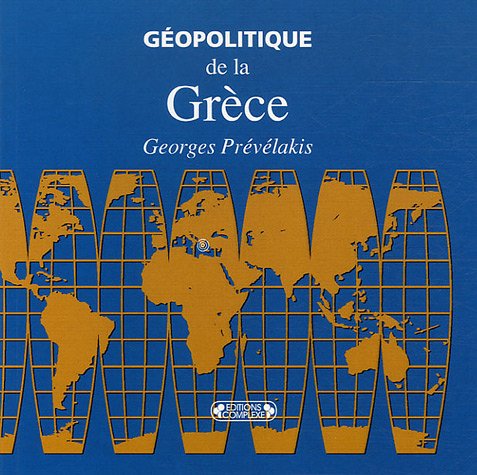George Prevelakis is Professor of Geopolitics at the Panthéon-Sorbonne university in Paris and an Associate Fellow at the SciencesPo Center of International Research (CERI) in Paris. He specializes in European, Balkan and Eastern Mediterranean Geopolitics, in Diasporas and in Physical Planning. After leaving Greece in 1984, he has occupied teaching and research positions in Paris, Baltimore, Boston and London. During the academic years 2003-2005 he served as the Constantine Karamanlis Chair in Hellenic and Southeastern European Studies at the Fletcher School (Tufts university) and during the period 2013-2015 as the Greek Ambassador at the OECD.
Professor Prevelakis co-directs the academic journal Anatoli (Paris, CNRS Editions). His publications include Les Balkans, cultures et géopolitique (1994), Les réseaux des diasporas/The networks of Diasporas (1996), Athènes: urbanisme, culture et politique (2000), Géopolitique de la Grèce (2005) and Pourquoi une nouvelle Entente balkanique? (2010). His latest book “Who are we? Geopolitics of the Greek identity” (in Greek: Ποιοι είμαστε; Η γεωπολιτική της ελληνικής ταυτότητας, 2016) will soon appear in English.
He also frequently writes articles and gives interviews to the Greek and international media about Greece and the Greek Geopolitics (e.g.: University of Oxford (1998), Esprit/Eurozine (2011), Fondation Robert Schuman (2015).
Professor Prevelakis spoke to Rethinking Greece* about the Greek geopolitical condition, the global Greek diaspora, “Eurocentric” approaches to the territorial Nation-State, Greek geography (Ancient and Modern) and the East-West divide, Greece’s “mythistorical vacuum”, crisis as a learning process, and finally, the need for an “opening up” of the Greek identity and the reinvention of the concept of Hellenism as a link between Europe and the emerging multipolar world:
To what degree do geography / geopolitics define a country’s identity and prospects? How do you view Greece’s position in the East Mediterranean and the Balkans?
Greece is situated in one of the major geopolitical crossroads of the world, bridging Europe with Asia and Africa and connecting the Russian space with the warm seas. For this reason, it has been constantly exposed to wider tensions. Conflicts with its neighbours as well as Greece’s entanglement in the two World Wars and in the Cold War are the obvious consequences of its Geography.
The weakness of domestic forces, in comparison to the pressures exercised from the geopolitical environment, explains another major Greek problem, the recurrent internal division, the “Dichasmos”, which has plagued Greek political life since the creation of the Greek State: pro-British against pro-German, pro-American against pro-Soviet etc.
The Greek geopolitical situation breeds favourable conditions for rent-seeking. USA aid in the late 1940s and early 1950s was a form of geopolitical rent paid to Greece. Although rent appears as an asset, it functions as a major handicap. It disorients national energies from the production of wealth; structures economic and political life around conflicts for its appropriation; promotes corruption; hinders meritocracy; turns the country introvert. The roots of the present crisis must be sought in the three decades of European (and Eurozone) rent.
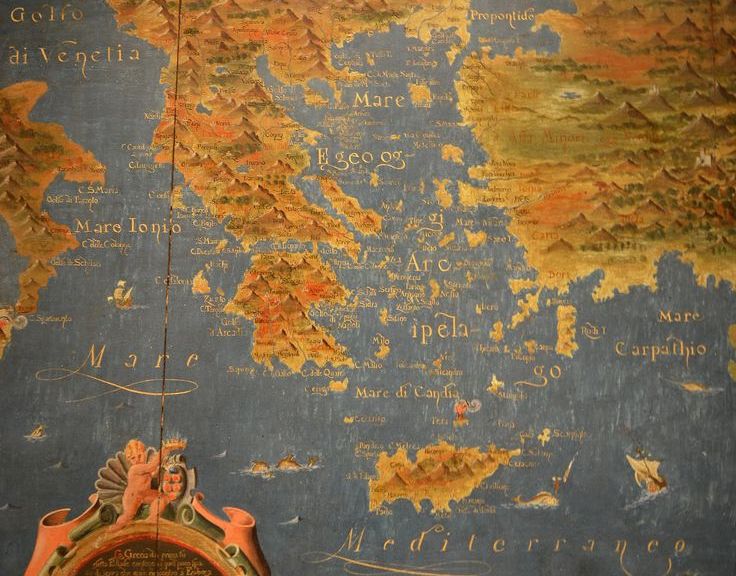 ©Benaki Museum
©Benaki Museum
The relationship between the national and the diasporic Greek realities is complex and unclear, usually cooperative, although sometimes competitive. During the military dictatorship (1967-1974), most of the diaspora antagonised or was hostile to the official Greek State. As in the case of Israel and the Jewish diaspora, this Greek dualism offers political and geopolitical flexibility and resilience. The Geopolitics of Greece is much more complicated than what appears at first glance by simply looking at the map of the East Mediterranean and the Balkans.
In your latest book “Who are we? The geopolitics of Greek identity” you write that Greeks as a people, like the Jews, Persians and Chinese (among others) escape the narrow, Western-European condition of the nation-state. Would you like to tell us more?
Among the various peoples, Greeks appear as the archetype of a modern nation. This stereotype is the cause of many western misconceptions, as well as of the recurrent crises between Europe and Greece. Considered and admired as the descendants of Ancient Greeks, Greeks inspire hostility when their mentalities and consequent reactions belie this romantic view. These behavioural extremes are provoked by the inadequacy of our analytical instruments.
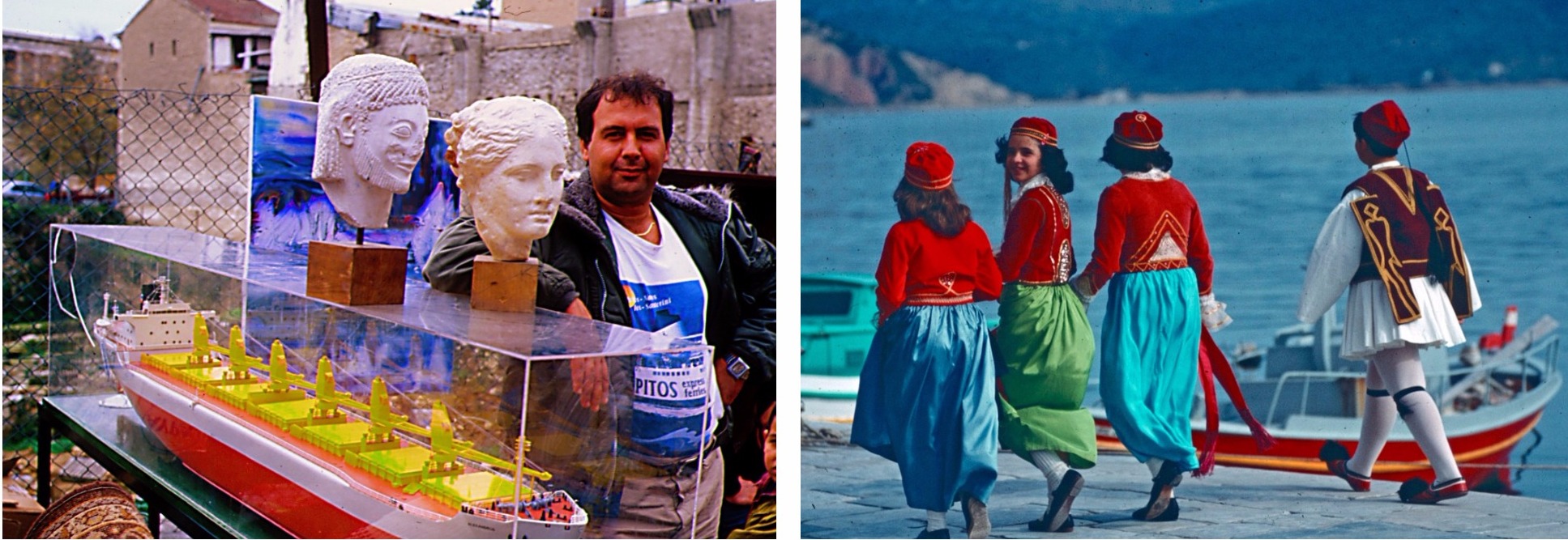 The concepts generally used in social sciences are conditioned by the geopolitical experience of the territorial Nation-State. Well adapted to analyse the English or the French, they are much less operative in other situations. Specialists need to devise new concepts, not only in order to grasp the experience of peoples with a long past, like the Greeks, the Jews, the Iranians or the Chinese, but also because the modern State itself has become less relevant under the influence of Globalisation and the waves of technological innovation. The Eurocentric approaches have to be adapted to other geographical (other peoples and regions), and historical (pre-modern European past, post-modern future) realities. The study of the Greek case has important heuristic qualities because it introduces challenging conceptual questions. Can the concept of the Greek Nation-State be replaced, so as to describe a long-term reality? Is the concept of Hellenism the solution?
The concepts generally used in social sciences are conditioned by the geopolitical experience of the territorial Nation-State. Well adapted to analyse the English or the French, they are much less operative in other situations. Specialists need to devise new concepts, not only in order to grasp the experience of peoples with a long past, like the Greeks, the Jews, the Iranians or the Chinese, but also because the modern State itself has become less relevant under the influence of Globalisation and the waves of technological innovation. The Eurocentric approaches have to be adapted to other geographical (other peoples and regions), and historical (pre-modern European past, post-modern future) realities. The study of the Greek case has important heuristic qualities because it introduces challenging conceptual questions. Can the concept of the Greek Nation-State be replaced, so as to describe a long-term reality? Is the concept of Hellenism the solution?
Similar to Judaism, Hellenism is a useful concept, although misused by the Greek nationalistic discourse, thus needing to be “reinvented”. This procedure claims a certain distance from the scientific preoccupation with precision. Following Albert Einstein, for whom “the more we gain in precision, the more we lose in depth”, the term “Hellenism” has to be treated in a relatively imprecise way in order to preserve its heuristic value without falling in its essentialisation.
In my book I have described Contemporary Hellenism as a “cultural sediment”, whose origins are to be found in the Ancient Hellenic World. In spite of the changes, there remained a substance, of which the Greeks of today are not the unique inheritors. Still, for various reasons, the most important of which are the linguistic continuity and the interconnections between the Greek language and Orthodoxy, they occupy a most significant position. Well founded critics accuse the Greek State’s recent policies towards language and religion as eroding those very elements. However, the long term survival of Hellenism has proven its resilience. It is protected from the blows of Stato-Nationalism by its hidden cultural and institutional resources.
The idea of the uninterrupted continuity of Greece from antiquity to modern times has been a constitutive part of Greece’s nation building process. You have written about “opening up” Greek identity, cautioning however against “certain progressive” theories that end up “corroding” some of its elements. What is really at issue here?
The issue is not so much about continuity per se, but rather about what we mean by “Greece”. The nationalistic narrative projected to the past an image corresponding to the geopolitical reality of the Greek territorial Nation-State. According to this narrative, at least in its vulgarised form, the Ancient Greek world was a kind of Nation-State situated in the southern part of the Balkan Peninsula. Obviously this idea stems from a complete deformation of Ancient Greek geography which took the form of a discontinuous network of city-states extending from the shores of the Black Sea to today’s southern France and even further.
The historian William H. McNeill introduced the term of Mythistory: “unalterable and eternal truth remains, like the Kingdom of Heaven, an eschatological hope. Mythistory is what we actually have—a useful instrument for piloting human groups in their encounters with one another and with the natural environment.” [1]
The Greek strongly anachronistic nationalist “Mythistory” was necessary in the competitive environment of post-ottoman nationalisms and in the European ideological environment of the 19th and the first half of the 20th century. It is not useful anymore and, in addition, it can easily be demolished. It is much harder to develop an alternative “Mythistory”, adapted to the new conditions of a rapidly changing world. The moral crisis of Greece of today has a lot to do with its mythistorical vacuum. The self-perception of the Greeks has to move forward.
Thus, a more balanced interpretation of the Ottoman past can open up Greek identity and create the conditions for a more profound dialogue with both the West and the East. It can also help cope with challenges like the “demographic winter” and migration issues.
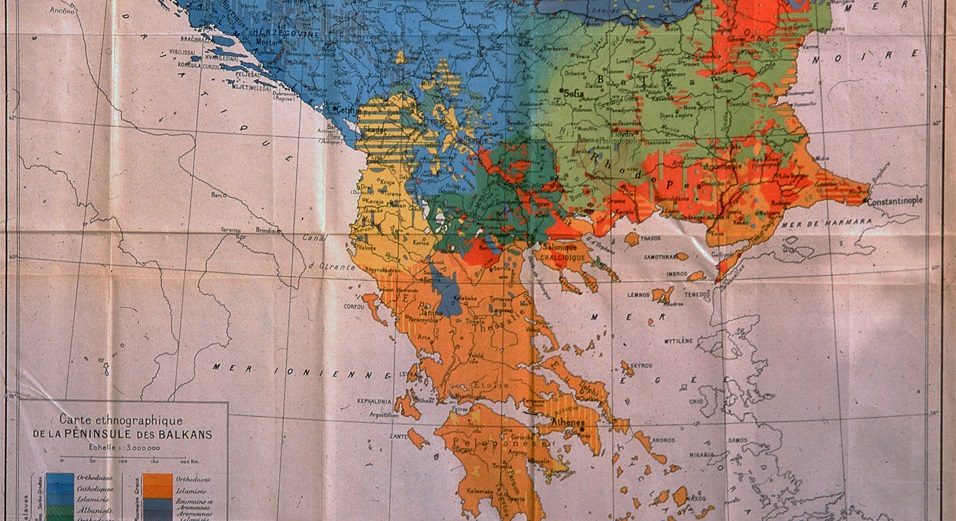 Contrary to received ideas, a more open identity will not be weaker, but stronger. As the Prince of Salina says in Luchino Visconti’s film The Leopard, “things have to change in order to remain the same”. However, not every kind of “opening up” will strengthen Greek identity. It is also necessary to resist to the trend of deconstructing traditional symbols and institutions in the name of an already outdated “modernity”. Even if there is abundant space for the non Greek-speaking or the non-Orthodox, language and religion do remain the two pillars of contemporary Hellenism and constitute major assets in a world where the cultural and spiritual dimensions are constantly appreciated.
Contrary to received ideas, a more open identity will not be weaker, but stronger. As the Prince of Salina says in Luchino Visconti’s film The Leopard, “things have to change in order to remain the same”. However, not every kind of “opening up” will strengthen Greek identity. It is also necessary to resist to the trend of deconstructing traditional symbols and institutions in the name of an already outdated “modernity”. Even if there is abundant space for the non Greek-speaking or the non-Orthodox, language and religion do remain the two pillars of contemporary Hellenism and constitute major assets in a world where the cultural and spiritual dimensions are constantly appreciated.
To what extent does the Greek crisis reveal the weaknesses of the European project? Can we interpret current political developments in Europe from a cultural geography vantage point?
There is no doubt that the European project is not perfect; how could it be otherwise in such an ambitious enterprise? However, interpreting the Greek crisis simply as a consequence of contradictions in the European economic and financial sphere misses the point. What needs to be explained in the Greek case is not why the South got behind the North; but why, among the economies of the South, Greece faces much more difficulty to re-emerge. Moving away from the North-South opposition, the problem refers to the East-West divide. This geographical shift has serious methodological implications. Geopolitics and geo-culture replace geo-economics. We need for example to understand how the different historical paths of countries like Portugal and Greece are reflected in issues like the relationship of citizens to the State or their attitudes towards tax evasion.
Today’s dominant European paradigm, based on Economics and Law, has proven unable to grasp such dimensions. There lies the real reason of Europe’s failure to help Greece during the crisis. Contrary to what is usually thought, the problem is not of a material order. On the basis of the Greek-European crisis, serious misunderstandings from both sides have led to the present dead end. With very few exceptions, Greek intellectuals failed to develop an autonomous analytical approach during the past decades. Even when criticising Europe and the West, they remained dependent on the dominant debates in the western academic environments. On the other side, in spite of its declared purpose to include cultural diversity, the European project has remained Eurocentric. West Europeans continue to project their own experience to other cultures and react negatively when those cultures do not respond accordingly.
Discords with the various European peripheries are therefore inevitable. Analysed from a cultural geography vantage point, the Greek crisis can offer useful insights to Europe to cope with problems of similar nature, present or future, and to grasp new opportunities.
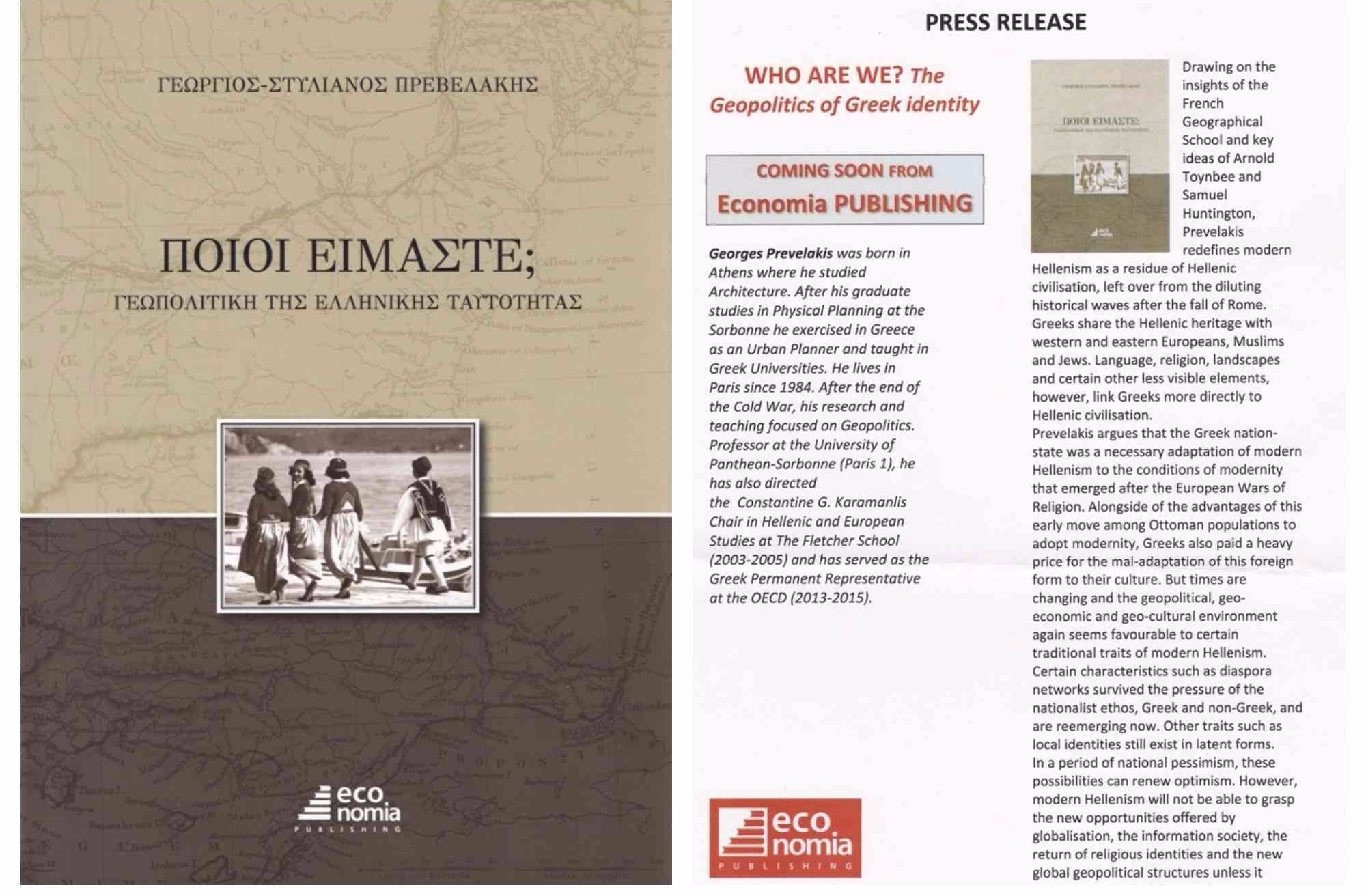 How can Greece move forward beyond the crisis’ constraints and out of the creditor’s tutelage? How can we rethink Greece’s geographical position and cultural comparative advantages in today’s circumstances?
How can Greece move forward beyond the crisis’ constraints and out of the creditor’s tutelage? How can we rethink Greece’s geographical position and cultural comparative advantages in today’s circumstances?
A crisis is a learning process. Greeks have had to get rid of a series of misunderstandings that took form during the three decades of false prosperity. Abandoning the illusions is however a painful process. During the crisis years, it has been necessary to repay the “pain debt” accumulated while Europe furnished Greeks with the anaesthetics of easy money and unconditional solidarity. Once this debt is repaid, once the mourning of the easy past is over, Greece will be able to benefit from its extraordinary comparative advantages. Historically, Greeks flourish in adversity and decline in the easy life.
There already exist certain encouraging signs. According to the last opinion polls, Greeks are abandoning the conviction that the State can solve all problems. Also, economic statistics show that they are becoming more extrovert in their activities. The new Greece that will emerge from the crisis will be useful to Europe, not only for the obvious material advantages it can offer, but also culturally. Greeks, in Greece and the Diaspora, represent a link between Europe and the emerging multipolar world, made up of old civilisations. What seem today as a set of cultural handicaps hindering Greece’s “modernisation” or “Europeanisation” will in fact function as Europe’s asset in its effort to reconcile itself with peoples and civilisations dominated in the past and now re-claiming their place in history.
In an article published just after the Greek defeat in Asia Minor (1922), the Oxford Professor of Archaeology Sir William Ramsay wrote: “One of the most remarkable facts of history is the power of the Greek people to adapt to other nations and thereby assimilate nations to themselves” [2].
It is a quality that Europe much needs today and will need even more in the future.
*Interview by Ioulia Livaditi
[1] William H. McNeil, «Mythistory or Truth, Myth, History and Historians», Mythistory and Other Essays, The University of Chicago Press, 1986, p. 21-22
[2] Sir William Ramsay, “A sketch of the geographical history of Asia Minor” National Geographic, November 1922, p. 553-570, p. 560
Géopolitique de la Grèce (2005). Read inside the book:


